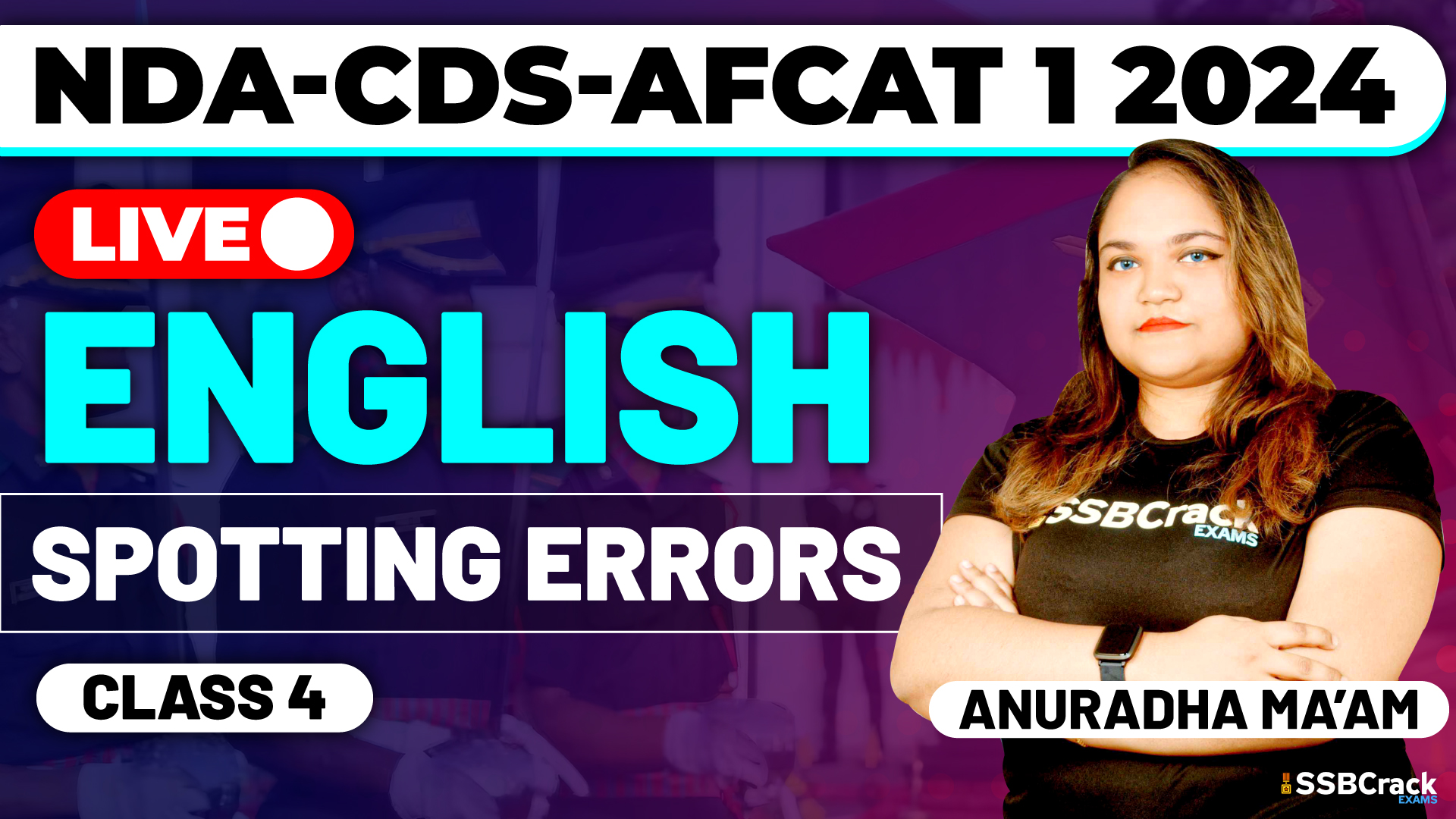In the competitive arena of examinations like the National Defence Academy (NDA), Air Force Common Admission Test (AFCAT), and Combined Defence Services (CDS), the English language section often emerges as a battleground where aspirants seek to prove their mettle. Among the various topics assessed, “Spotting Errors” assumes the role of the most pivotal and challenging segment. To excel in this section, one must possess a profound and comprehensive understanding of English grammar rules. At the heart of conquering Spotting Errors lies the mastery of rules governing Tenses and Gerunds.
Understanding the Significance of Tense and Gerund Rules
Tenses, which indicate the time of an action, and gerunds, which are verb forms ending in “-ing” and used as nouns, are foundational to constructing accurate and meaningful sentences. A firm grasp of these rules is essential for several reasons:
- Spotting Errors Proficiency: A significant proportion of Spotting Errors questions are centered on the correct usage of tenses and gerunds. Adeptness in these areas enables you to swiftly and accurately identify grammatical discrepancies.
- Clarity and Precision: The correct use of tenses ensures that actions and events are conveyed with clarity and accuracy. Misplaced tenses can lead to confusing or incorrect statements.
- Effective Communication: In both written and spoken communication during exams and interviews, appropriate tenses and gerunds enhance the fluency and impact of your language.
- Foundational Grammar Skills: Beyond the exams, a strong foundation in tense and gerund rules contributes to overall English language proficiency.
Key Tense Rules for Success
Let’s delve into some of the most vital and exam-specific tense rules that can pave your way to conquering the Spotting Errors section in NDA, AFCAT, and CDS exams:
- Simple Present Tense: Used for actions that are habitual, factual, or general truths (e.g., “The sun rises in the east”).
- Present Continuous Tense: Describes actions that are ongoing at the time of speaking (e.g., “She is studying for the exam”).
- Simple Past Tense: Indicates actions completed in the past (e.g., “He finished his assignment yesterday”).
- Past Continuous Tense: Describes actions that were ongoing at a specific time in the past (e.g., “They were playing football when it started raining”).
- Present Perfect Tense: Expresses actions that occurred at an unspecified time in the past and have relevance to the present (e.g., “I have visited that museum”).
- Past Perfect Tense: Indicates an action completed before a specific point in the past (e.g., “He had already eaten when I arrived”).
- Future Tenses (Will and Going to): Used to express actions that will happen in the future (e.g., “I will call you later” or “She is going to attend the conference”).
Key Gerund Rules for Success
Now, let’s explore some essential gerund rules:
- Gerunds as Subjects: Gerunds can function as subjects of a sentence, denoting the action being performed (e.g., “Swimming is her favorite hobby”).
- Gerunds as Objects: Gerunds can serve as objects of verbs, prepositions, or phrasal verbs (e.g., “He enjoys dancing” or “She is good at cooking”).
- Infinitive vs. Gerund: Be mindful of the difference between infinitives (e.g., “to run”) and gerunds (e.g., “running”) and when to use each form in sentences.
- Gerunds After Certain Verbs: Some verbs are followed by gerunds (e.g., “She admitted to stealing the cookies”). Pay attention to these verbs to ensure correct usage.
Conclusion
Mastery of Tense and Gerund rules is not just a prerequisite for excelling in the Spotting Errors section of NDA, AFCAT, and CDS exams; it is a fundamental skill for effective communication in English. These rules provide a solid foundation for understanding sentence structure, grammar, and clarity in expression. By dedicating time to learn and practice tense and gerund rules, you equip yourself with a potent tool to navigate the challenges of competitive exams and enhance your overall English language proficiency. Embrace these rules, practice diligently, and pave your path to success in the NDA 1 2024, AFCAT 1 2024, and CDS 1 2024 exams.







